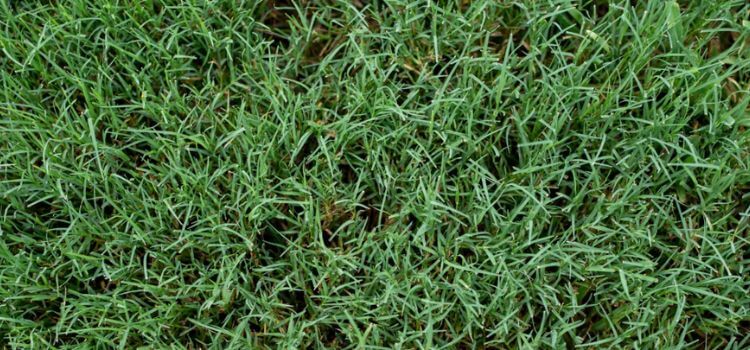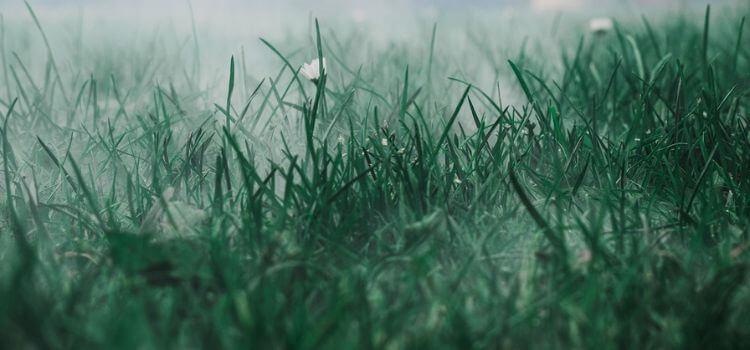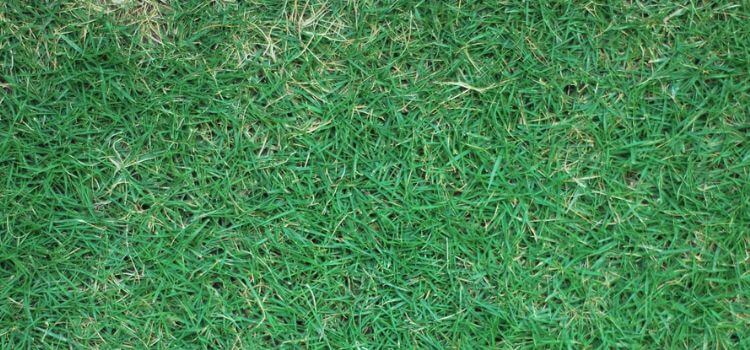As an Amazon Associate, I earn from qualifying purchases.
To ensure Bermuda grass turns dark green, regularly fertilize and water it. Proper mowing and pest control are also essential.
Bermuda grass, known for its resilience and lush appearance, adds a vibrant touch to lawns when adequately maintained. Achieving that deep green hue requires a balance of essential nutrients, consistent watering, and regular lawn care practices. Homeowners and garden enthusiasts often seek the perfect shade of green to enhance their outdoor spaces.
Bermuda grass can transform into a desirable, dark green carpet that thrives in warm climates by sticking to a tailored care routine. Understanding the specific needs of this grass variety is critical to unlocking its full potential and achieving a beautiful, healthy lawn that stands out in any neighbourhood.
Bermuda Grass
Everyone loves a lush, green lawn. Bermuda grass is a popular choice for achieving that perfect yard. But making it dark green takes some understanding.
Characteristics Of Bermuda Grass
Bermuda grass is known for its hardiness and ability to thrive in warm climates. It’s a go-to for many homeowners. Here’s what makes it unique:
- Dense growth: It forms a thick, carpet-like lawn.
- Heat tolerance: Bermuda grass loves the sun and heat.
- Drought resistance: It can survive dry spells better than many types of grass.
- Quick recovery: It repairs itself fast from damage.
These traits make Bermuda grass a top pick for sunny and warm areas. But getting that dark green shade requires more than just planting it.

The Color Of Bermuda Grass
The colour of Bermuda grass can change for many reasons. A healthy, dark green colour is a sign of good health. Here are the main factors:
Factor | Impact |
Watering | Too little water turns it brown. Too much causes disease. |
Fertilization | Proper nutrients make it dark green. Wrong ones can harm it. |
Sunlight | Needs lots of sun. Shaded areas may look lighter. |
Mowing | Too short harms it. Ideal height promotes health. |
Essential Nutrients For Dark Green Bermuda Grass
Proper nutrition is vital to achieve a lush, dark green Bermuda grass. Like all living things, grass requires essential nutrients to thrive. These nutrients affect its colour, growth, and health. For Bermuda grass, three primary nutrients are crucial: Nitrogen, Phosphorus, and Potassium.
Nitrogen
Nitrogen is the most essential nutrient for promoting a dark green in Bermuda grass. It aids in leaf growth and enhances the green pigment chlorophyll. Here’s how to ensure your Bermuda grass gets enough nitrogen:
- Use a high-nitrogen fertilizer during the growing season.
- Apply slow-release fertilizers to provide a steady nitrogen supply.
- Follow a regular fertilization schedule, typically every 4-6 weeks.
Here is a simple table for Nitrogen application rates:
Time of Year | Nitrogen Rate (lbs/1000 sq ft) |
Spring | 1 to 1.5 |
Summer | 0.5 to 1 |
Fall | 1 to 1.5 |
Too much nitrogen, however, can harm your lawn. Stick to recommended rates to avoid overfeeding.
Phosphorus
Phosphorus supports root development and early plant growth. It also helps Bermuda grass recover from foot traffic and mowing. Here’s how to ensure adequate phosphorus:
Conduct a soil test to measure phosphorus levels.
If needed, select fertilizers with a higher phosphorus content.
Apply phosphorus-rich fertilizers in the early growth stages.
Phosphorus application should align with soil test recommendations, as excess can lead to environmental issues.
Potassium
Potassium strengthens Bermuda grass against stress, diseases, and harsh weather. It also aids in water retention and root growth. Here’s how to ensure your Bermuda grass gets enough potassium:
- Choose a balanced fertilizer that includes potassium.
- Adjust application rates based on soil test results.
- Apply potassium during active growing periods.
Like nitrogen and phosphorus, stick to recommended potassium rates to maintain a healthy lawn.
Proper Watering Techniques
Everyone loves a lush, dark green Bermuda grass lawn. To achieve this, water matters a lot. Let’s discuss how to water your grass right. Using the best techniques will make your grass dark green and healthy.
Frequency Of Watering
How often should you water Bermuda grass? It depends on many things like weather and soil. But there are some general tips to follow. First, Bermuda grass needs about 1 to 1.5 inches of water weekly. This can come from rain or your watering. It’s better to water deeply and less often. This helps roots grow deep and strong. Here’s a simple plan:
- Summer: Water more because it’s hot and the soil dries out fast.
- Winter: Waterless. The grass grows slower and needs less water.
Check the soil before you water. Stick your finger in the soil up to the second knuckle. If it feels dry, it’s time to water. If it’s still moist, wait a day or two.
Best Time To Water Bermuda Grass
The best time to water Bermuda grass is early in the morning. This gives the grass time to soak up the water before the hot sun evaporates it, which helps prevent disease. Evening watering could be better. It leaves the grass wet all night, which can cause fungus. Aim to water between 4 a.m. and 10 a.m.
- Early Morning: Best time to water. Less evaporation and wind.
- Late Evening: Avoid this time to prevent disease and fungus.
Use a rain gauge or a small can to ensure your grass gets enough water. Could you put it in your yard when you water? This will show you how much water your grass is getting. You want to hit that 1 to 1.5 inches mark each week, whether from rain or your sprinkler.
Mowing Practices For Dark Green Bermuda Grass
Everyone wants a lush, dark green Bermuda grass lawn. It makes your yard stand out. To achieve this, mowing the right way is key.
Correct Mowing Height
Setting your mower height is crucial for dark green Bermuda grass. Too short, and the grass gets stressed. Too high, and it won’t get dense and dark. Here’s what you need to know:
- Start at 1.5 to 2 inches tall. This is the sweet spot for Bermuda grass.
- Increase height in hot weather. This helps the grass stay green and healthy.
- Mow often. Keep it from getting too long between cuts.
By following these guidelines, your Bermuda grass will grow thick and dark. Remember, consistent mowing at the right height is critical.
Sharpness Of Mower Blades
Sharp mower blades are essential for healthy, dark green Bermuda grass. Dull blades tear the grass, causing damage. This makes the grass look light and weak. Here’s how to keep your blades sharp:
- Check blades often. Look for dullness or damage every month.
- Sharpen blades twice a season. This keeps them cutting cleanly.
- Use the right tools. A professional can sharpen them perfectly.
Sharp blades mean clean cuts. Clean cuts help the grass heal faster and stay healthy, leading to a darker green lawn. Remember, a little care goes a long way. Keep your blades sharp for the best-looking yard on the block.
Dealing With Common Lawn Issues
Bermuda grass, known for its thick, lush, and dark green appearance, is a favourite for many lawns. But maintaining this vibrant colour requires tackling common lawn issues head-on.
Weed Control
Unwanted weeds compete with Bermuda grass for nutrients, water, and sunlight. This competition can lead to a less vibrant lawn. To ensure your Bermuda grass remains dark green, start with these steps:
- Pre-emergent herbicides: Apply these in early spring to stop weed seeds from germinating.
- Post-emergent herbicides: Use these to eliminate weeds that have already sprouted. Be sure to choose a product safe for Bermuda grass.
- Regular mowing: Keep Bermuda grass at the optimal height of 1.5 to 2 inches to discourage weed growth.
- Proper fertilization: Feed your lawn the right nutrients to help Bermuda grass outcompete weeds.
Pest Management
Pests can cause damage and stress to Bermuda grass, leading to a loss of that deep green colour. To manage pests effectively:
- Identify the pest: Know what you’re dealing with, whether it’s grubs, armyworms, or chinch bugs.
- Timely treatment: Apply pesticides when pests are most active for the best results.
- Use the right product: Select a pesticide that targets the pest without harming the grass.
- Regular inspections: Check your lawn frequently to catch any pest activity early on.
Preventative measures are also important. Here’s a simple strategy:
- Aerate the soil: This helps reduce compacted soil where pests like to hide.
- Water wisely: Overwatering can attract pests, so water deeply but infrequently.
- Maintain a healthy lawn: A strong Bermuda grass lawn can resist pests better than a weak one.
Enhancing Color With Natural Remedies
Everyone loves a lush, dark green Bermuda grass lawn. It’s not just about watering. You can get that deep green colour using natural remedies. Let’s dive into how organic fertilizers and compost can transform your lawn.
Use Of Organic Fertilizers
Organic fertilizers are a powerhouse for Bermuda grass. They slowly release nutrients. This helps the grass grow solid and dark green. Here’s why they’re great:
- Safe for the environment: They don’t pollute our water.
- Improve soil health: They add organic matter to the soil.
- Feed the grass slowly: This means no sudden growth spurts.
Choosing the right organic fertilizer is critical. Look for ones with nitrogen, phosphorus, and potassium. These nutrients are like a super meal for your grass.
Apply organic fertilizer in spring and fall. This will give your Bermuda grass the boost it needs to be its greenest.
Beneficial Effects Of Compost
Compost is like a magic elixir for Bermuda grass. It’s full of nutrients that help grass grow thick and green. Here’s how compost helps:
- Improves soil structure: This means better water and air for roots.
- Adds beneficial microbes: They break down nutrients for the grass.
- Provides slow-release nutrients: This keeps the grass-fed over time.
You can make your compost or buy it. Use vegetable scraps, leaves, and grass clippings. In early spring, spread a thin layer of compost over your lawn to prepare it for the growing season.
Remember, a little goes a long way. About half an inch of compost is enough. It will filter down and improve the soil, and your Bermuda grass will thank you by growing dark green and healthy.

Frequently Asked Questions
To achieve deep green Bermuda grass, fertilize regularly with nitrogen-rich products, ensure consistent watering, mow at the recommended height, control weeds, and perform routine soil tests to adjust pH and nutrient levels.
Apply a nitrogen-rich fertilizer and ensure proper watering to achieve a darker green color for your grass. Iron supplements can also enhance greenness. Regular lawn maintenance supports healthy, vibrant growth, including mowing and aeration.
Your Bermuda grass may not be dark green due to inadequate fertilization, insufficient water, disease, pest infestation, or lack of sunlight. Proper lawn care can address these issues.
The best fertilizer for greening Bermuda grass is one high in nitrogen, such as a 16-4-8, 15-5-10, or similar N-P-K ratio formula. Apply during active growth periods for best results.
Conclusion
Achieving a lush, dark green Bermuda grass is within your grasp. Regular feeding, proper mowing, and adequate watering are essential. Remember to conduct soil tests and apply iron supplements when necessary. Your dream lawn awaits with these simple, practical steps.

